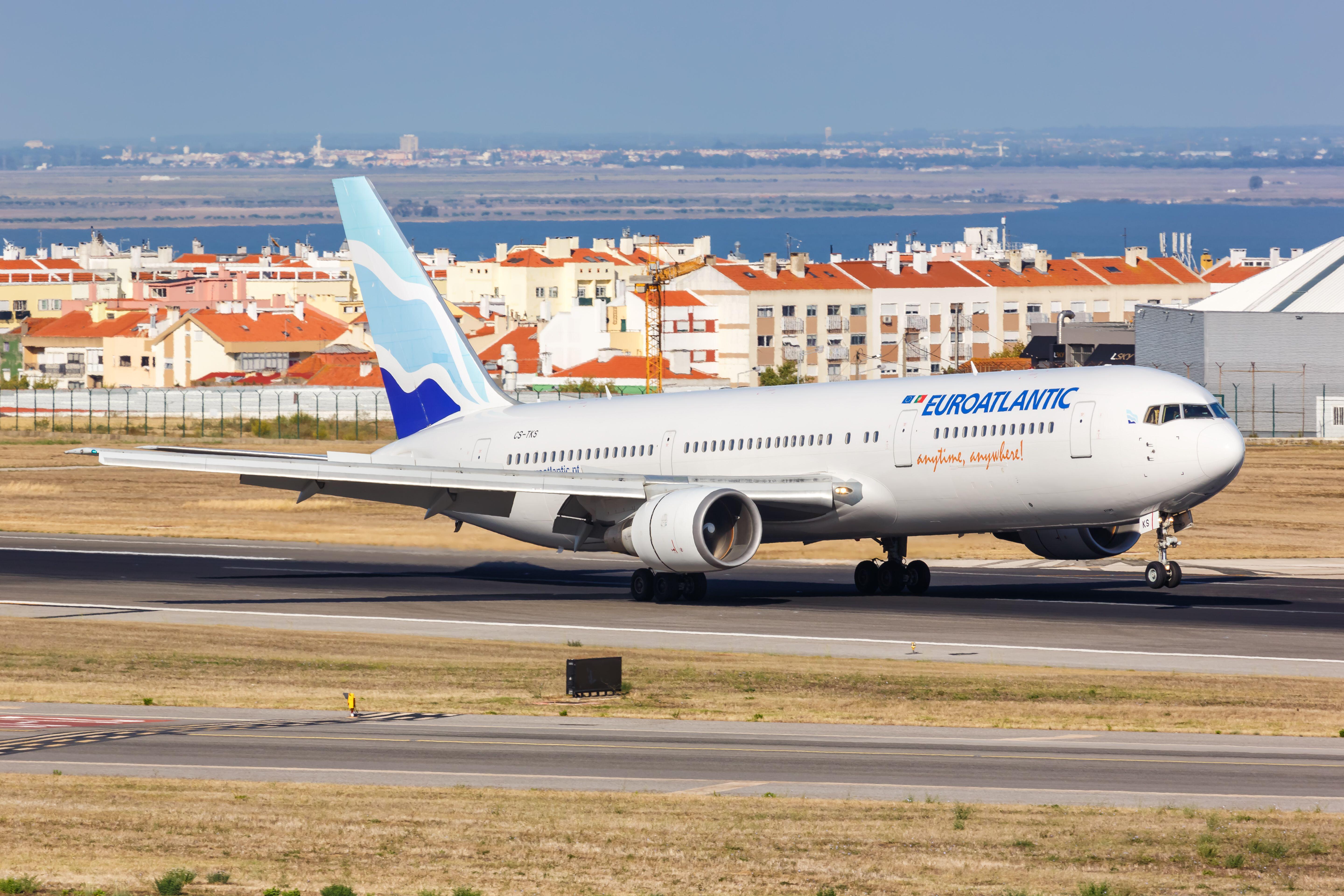
New Middle East freight carrier MENA Cargo aims to add “at least three to four” more aircraft for its fleet in the next 12 months and is aiming to have 15 to 20 aircraft in the longer term.
As well as its initial equipment, a Boeing 737-300F Pemco cargo conversion, the Bahrain-based airline has signed year-long lease agreements with Portugal’s euroAtlantic Airways for a Boeing 777-200ER and a 767-300ER, both of which will be operated in P2F configuration. The two companies said that further aircraft were likely to follow later.
The two widebodies are not included in the further three to four aircraft mentioned during the Nov. 3 press conference.
MENA Cargo will initially fly both scheduled and ad hoc cargo services in the Gulf. The company plans to expand its operations into North and East Africa.
The longer-range widebodies will be used to start to realize MENA Cargo’s plans of linking Southeast Asia and China with the Middle East and Africa.
MENA Cargo is part of the MENA Aerospace group, which has a number of aviation interests including managing executive jets, development of aviation real estate and avionics technical workshops. However, the group has stepped back from one of its previous focus areas, operating executive jets, to concentrate on the cargo sector, MENA Aerospace founder and MD Mohammed Juman said.
Brian Hogan, a MENA Aerospace board member, said that the airline’s expanding fleet was likely to include “at least two or three 737-800Fs” to serve the Bahrain market over the next year. One would be added by January, with a further two expected in the second and third quarters of 2022.
The airline’s expanded long-haul component would ideally consist of more 777 freighters, Hogan said, but conversion slots were full until at least 2023 and interim equipment could include 767s or Airbus A330s—again, operated in P2F layout.
The company is confident that, despite the increase in cargo capacity in the Gulf—provided both by cargo specialists and returning belly-hold capacity in passenger aircraft—there will be more than enough traffic, particularly in the e-commerce field, for the company to co-exist alongside rivals.
Bahrain is already home to several expanding cargo specialists including DHL Express MENA and locally based Texel Air. Juman said the intention was not to compete head-on with major players such as DHL and FedEx, but to complement them.

